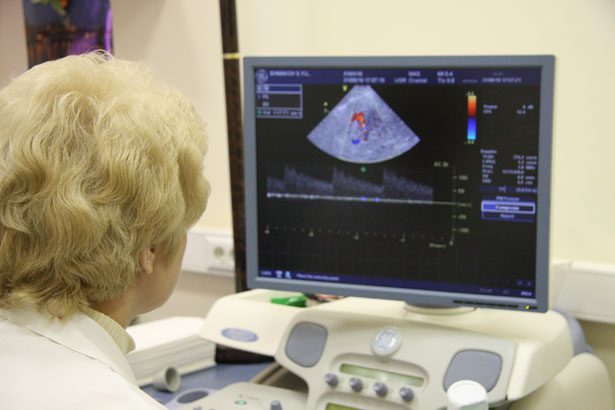
Medical imaging equipment comes in all shapes, sizes, and types — CAT scans, MRI, PET scans, X-rays, and ultrasound among them. But even within a single type of imaging equipment, there can be significant differences. A dental x-ray machine, for instance, is considerably different from a chiropractic X-ray machine, and even ultrasound machines come in a variety of configurations and sizes. So how do you choose the best ultrasound machine for your medical practice?
Ultrasound Equipment Solutions? Sounds Great!
Ultrasound Machine Types: Choosing the Right Machine for Your Practice in Michigan
You may have arrived here hoping that we would suggest a specific make and model. In truth, choosing the right ultrasound machine has more to do with its fit within your practice; once you’ve gone through the checklist below, you’ll be better equipped to narrow your choices (or may even find that your needs practically dictate the decision for you).
Ultrasound Equipment Budget
Cost isn’t the sole determinant of the best ultrasound machine, but it’s important nonetheless. Start your search with a budget in mind, also remembering that it’s possible to save by choosing refurbished used ultrasound equipment so you don’t need to sacrifice function for cost.
Ultrasound Equipment Functionality
While ultrasound is often thought of as a diagnostic tool, it also has treatment applications. Furthermore, depending on the unit you choose, ultrasound machines can display results in two dimensions, three dimensions, or even four dimensions (3D, plus the tracking of changes in real-time). It’s also worth noting that some machines offer the choice of grayscale or full-color display, with the latter proving especially useful for imaging circulatory problems.
Ultrasound Equipment Ease of Use
Besides probes and peripherals, your choice of imaging software will go some way toward influencing your choice. Some types of software are capable not only of logging test results, but also of adjusting resolution and contrast, conducting pattern recognition, and other functions your practice may find useful.
Ultrasound Equipment Portability
Some ultrasound machines rely on a console design that is intended to be stationary. This can be practical if your practice has the space for a dedicated ultrasound suite, but it may not be advisable for practices where ultrasound is used less frequently, or where space is at a premium. In those instances, a portable ultrasound machine is a better choice.
Custom Ultrasound Features
In addition to the option of portability, ultrasound machines also rely on some different probes, each suited to a different diagnostic purpose. What fits perfectly in an orthopedic or gynecological practice might be useless in the context of veterinary medicine (for example), so it’s important to consider your and your patient’s needs as you shop.
Why It Matters: Ultrasound Benefits
Ultrasound has numerous benefits for practitioners and patients alike.
- Ultrasound is ideal for imaging soft tissue that X-rays would pass through
- It relies on sound waves rather than ionizing radiation; this means there’s no need for radiation shielding, and also that ultrasound is safer for technicians, patients, and unborn children alike
- Unlike an MRI or CAT scan, patients are not enclosed, making examinations less stressful
- Exam preparation is safe, simple, and hypoallergenic since it does not rely on dyes or contrast solutions
- Ultrasound is noninvasive
- Results are rapid, and ultrasound is even used for real-time guidance during complex surgeries
- Results are easily shared, making consultations and comparisons easier than they may be with other diagnostic modalities
- Because of its simplicity of use and interpretation, ultrasound is often cheaper than other forms of medical imaging
- Through decades of use, there are no documented instances of harmful side effects from ultrasound
Contact Great Lakes Imaging for an Imaging Equipment Consultation!
Every type of medical imaging equipment sold by Great Lakes Imaging has its place and purpose. As good as it is, ultrasound should therefore be viewed as a supplement to other forms of diagnostic imaging, rather than a replacement for X-ray machines and the like. For help designing and sourcing the right diagnostic equipment for your practice, get in touch with us today!
